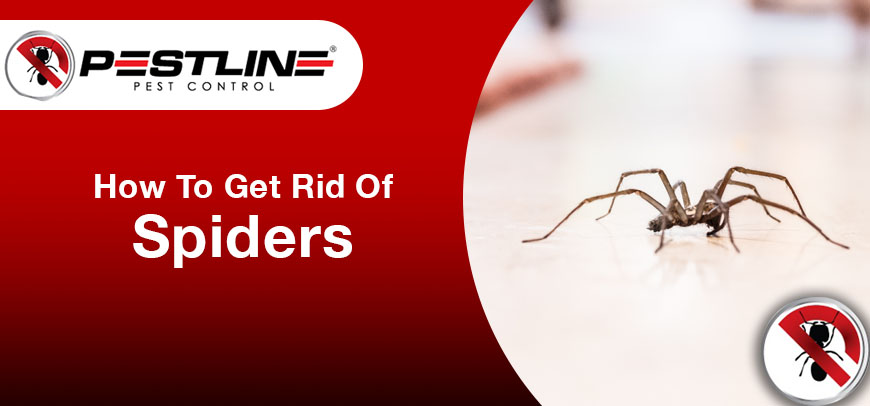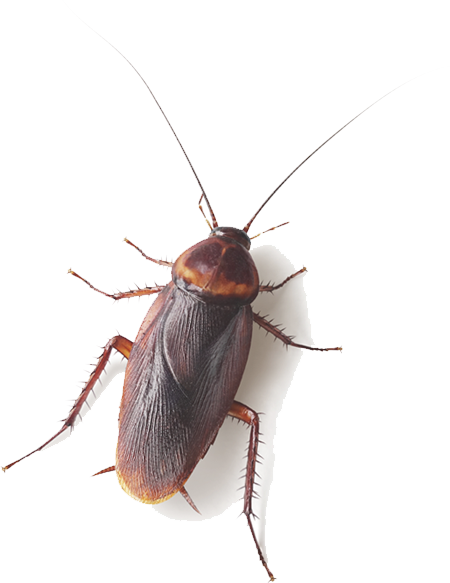How To Get Rid Of Spiders
Spiders play an interesting role in the food chain of common household pests. For starters, you’ve likely heard the phrase that spiders are ‘a good kind of pest’ because they prey on other insects. Whilst this may be true, it’s important to keep in mind that Australia is home to many different types of venomous spiders. So it’s only natural to want to know how to get rid of spiders rather than just conceding the corners of your ceilings to them.
10 Tips on How To Get Rid Of Spiders Easily
If you’re not keen on cohabiting with these creepy crawlies, we’re here to help. Today, we are sharing our top 10 ways to get rid of spiders in and around the home.
Our top 10 tips on how to get rid of spiders:
- Keep your home clean and free from clutter
- Seal any gaps and cracks around your home
- Remove spider webs whenever you spot them
- Remove spiders on sight with spider catchers
- Be mindful of what you bring into your house
- Use natural spider repellents in your home
- Plant eucalyptus trees in your garden
- Stay on top of your garden maintenance
- Turn outdoor lights off when not in use
- Enlist expert spider control and removal services
1. Keep your home clean and free from clutter
Like most pests, spiders are drawn to environments where they have two things in abundance: food and places to hide (or shelter). As spiders feast on other pests, all they need to be drawn to your home are plenty of nooks and crannies where they can weave their webs and wait for their unsuspecting prey.
Because of this, the best method you can use to keep spiders away from your home is to simply keep it clean, tidy, and clutter-free around the clock. This means ensuring that all potential food sources are stored away and that there are no untidy, ‘hard to reach’ areas in your home where spiders could make themselves comfortable.
2. Seal any gaps and cracks around your home
If you’ve ever wondered how a spider has even found its way into your home, 9 times out of 10, you can expect the answer to be through a gap or crack in your doorways or window sealants. Spiders are drawn to warm and dry environments, so if they find a gateway into one, you can imagine that they’d be keen to use it. Thankfully, sealing up gaps and cracks in your doors and windows can help prevent these opportunistic arachnids from gaining entry into your abode.
Remember too, that bugs and spiders can come into your home through ducts and vents. For this reason, routinely cleaning out your home’s ducted heating or cooling systems is also key to ensuring that no spiders find their way into your home.
3. Remove spider webs whenever you spot them
Do you want to know how to get rid of spiders? You make sure that they can’t get comfortable! Spider webs can only form in undisturbed environments, so you’ll want to make sure that you’re dusting your home and any adjoining outdoor areas regularly – to ensure that no cobweb communities can develop around you. If cobwebs are left undisturbed, they can attract other spiders to that area resulting in a rapidly growing population and more cobwebs than you can tidy.
Particular problem areas that attract spider webs fairly quickly include outdoor shelters (i.e. gazebos, pergolas, or outdoor awnings), the corners of your ceiling, and around the grill, windows, and other design features of your cars. And yes, keeping your car free from cobwebs is as vital to keep spiders off your property as clearing your home and garden.
4. Remove spiders on sight with spider catchers
Although the ‘cup and paper’ trick may work for you when catching daddy’s long legs here and there, it’s important to remember that these close-contact removal measures won’t exactly be safe against venomous spiders. So how do you keep yourself safe when looking to remove venomous spiders or any spiders you may not be able to identify?
The best method is to use specially designed spider traps and spider catchers. You can find these online or at your local hardware store at affordable price points, just as you would citronella candles and other forms of natural spider repellents (though more on this later).
5. Be mindful of what you bring into your house
As we’ve mentioned, spiders can be pretty opportunistic pests. Not only are they experts at hide and seek, but they’re also smart enough to find their way into your home by piggybacking off of something else, like a potted plant or inside a gumboot. In other words, even with new sealant applied to all your windows and your vents cleaned out regularly, spiders can still find their way into your home by simply hitching a ride in on something that you carry into your house yourself.
Thankfully, this can be avoided by simply thinking critically about anything you do bring indoors from the outside world. We recommend doing boot checks to knock out any insects or arachnids that may be seeking refuge from the cold and rain by living in your footwear. Similarly, be sure to shake out any washing before bringing it back indoors and folding it into your cupboards and wardrobes. With these little measures up your sleeve, you can greatly reduce your chances of finding spiders in your home.
6. Use natural spider repellents in your home
For every artificial pesticide, there’s a natural insecticide that’s guaranteed to be kinder to your nose and lungs. And for those of us living with allergies, using natural insect repellents is guaranteed to be a far more suitable solution for your household.
Thankfully, spiders are naturally repelled by a lot of the same other natural methods used to remove pests like silverfish and cockroaches. This includes using essential oils like peppermint, lavender, citronella, and tea tree or eucalyptus. There’s also evidence that suggests that cedar wood acts as a deterrent against spiders, thanks to its natural oils. So cedar wood hangers in your closets or cedar wood furniture could also make for great natural spider repellents that are kind to your home’s air quality.
7. Plant eucalyptus trees in your garden
As eucalyptus is a natural spider repellent, planting some of these native Australian plants in your garden spaces and around your home, can work wonders when it comes to keeping spiders at bay. Simply put, if you’re after a way to get rid of spiders without using over-the-counter insecticides or other potentially harmful chemicals, this is the way to go.
Another undeniable benefit of planting eucalyptus trees in your backyard is that they’re evergreen, which means fewer piles of leaves for spiders to inhabit every autumn and winter season. And even if your gum trees do drop their foliage here and there, it’ll be more likely to attract birds building nests than it will spiders and lawn pests.
8. Stay on top of your garden maintenance
Alongside keeping your home free from clutter, you’ll also want to make sure that your garden spaces aren’t filled with areas where spiders can set up shop, so to speak. This means ensuring that there isn’t any excess vegetation, compost, overgrown shrubbery, or even piles of leaves where spiders could weave their webs or even just create their burrows.
If you do happen to find any spiders in your garden spaces, it’s also a good idea to learn how to identify them. Try to look at their markings and colourings or the way they move to help you determine the types of arachnids you’re dealing with. That way, you can pinpoint the best path of action on this wider list for removing those spiders safely and effectively.
9. Turn outdoor lights off when not in use
Although spiders aren’t attracted by bright sources of light themselves, your outdoor patio lighting and spotlighting can still attract other types of insects. And where there are insects, the spiders will naturally follow. This is why Aussie homeowners should get into the habit of turning off all outdoor lighting when they’re not using their outdoor spaces.
But there’s one other lesser-known reason to turn your outdoor lighting off: to accommodate wild birds that feed on spiders. Harsh artificial lighting and general light pollution can disrupt the movements and general quality of life of a range of bird species in Australia, including marine birds, native birds, and even your suburban mynahs. This birdlife can help maintain spider populations organically, so turning your outdoor lights off can help contribute to a natural form of spider control.
10. Enlist expert spider control and removal services
Finally, if you do happen to find a handful of redbacks or funnel web spiders in your home, and are concerned about removing these critters on your own, then you should feel encouraged to secure expert spider control services. With a dedicated pest control expert in your corner, you can make sure that all venomous spiders are removed from your property in the safest way possible.
Our spider control specialists are highly trained in the removal and extermination of Australia’s most venomous spiders. They will also ensure that spider removal callouts are handled with the utmost care, utilising low-impact control techniques that help to keep you, your family, and your pets safe from the risks of spider bites and other concerns.
The Final Word
With all these top tips on getting rid of spiders around your home and property, you should find keeping these eight-legged pests away to be a walk in the park.
If you do need additional support, however, or are concerned about handling the removal of venomous spiders and other dangerous spiders, then simply call up the team at Pestline to secure our spider removal services or any of our other domestic pest control services today.
Want to know how to get other bugs out of your home? Check out our other blogs:


